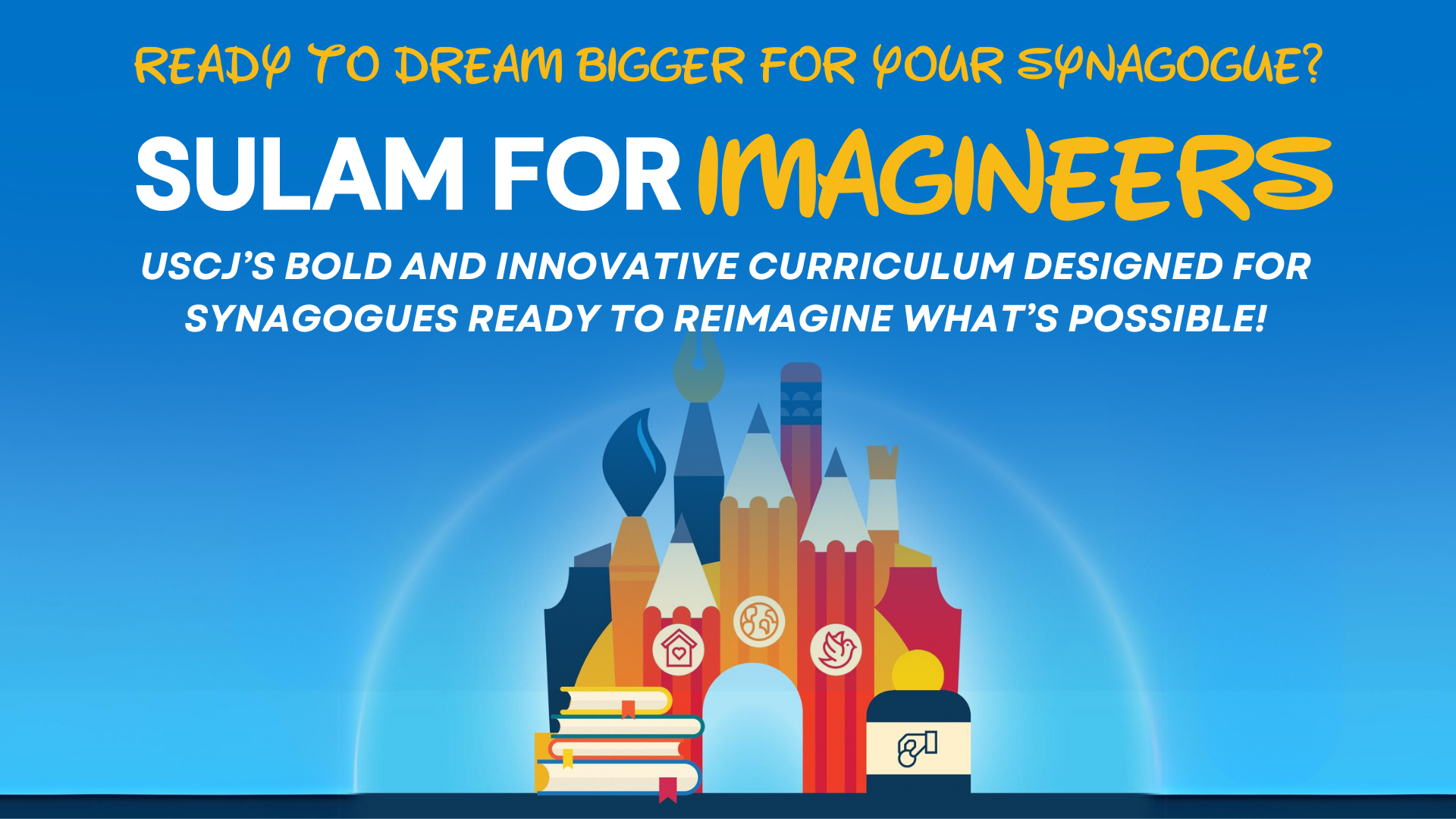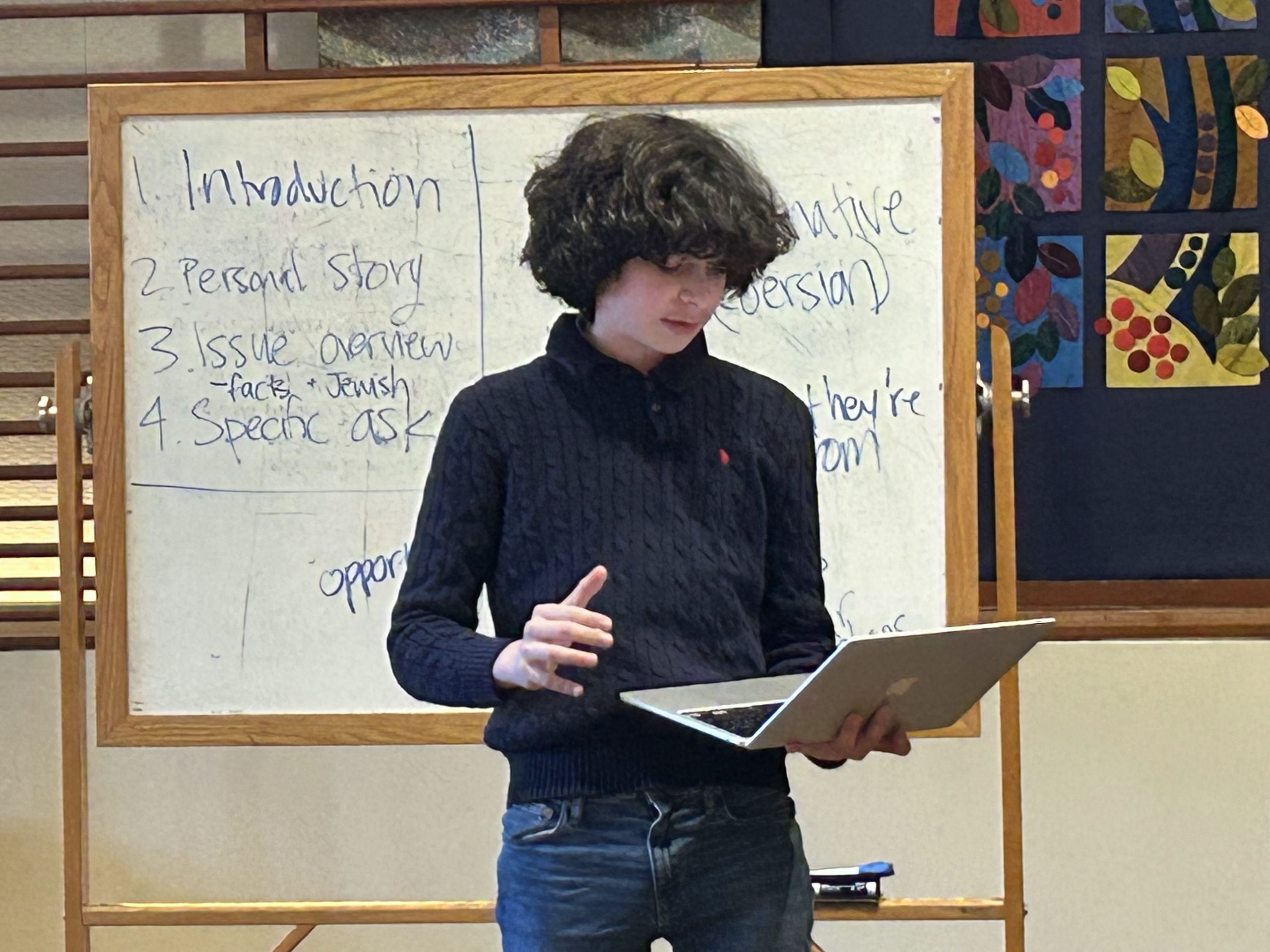
Besides speaking to our Conservative/Masorti kehillot, USCJ faces outward as well, representing our denomination and presenting an authentic, dynamic Judaism to the wider world. As part of that outreach we send representatives to sit on the boards of national and international public policy and interfaith organizations. Our voice matters and it is distinctive. Our political stance is passionate, rooted in Jewish history and texts, and also flexible and thoughtfully considered. Sensitive to the importance of context and shifting political circumstances, we resist reflexive responses. Consequently, USCJ is often the voice promoting dialogue and coalition building.
As one of the USCJ representatives on the board of the National Council of Synagogues, I recently had the opportunity to represent American Judaism at the General Assembly of the Presbyterian Church USA in St. Louis. This year, as in the recent past, the PC USA was considering multiple resolutions on the conflict between Israelis and Palestinians and on the future of Jewish-Presbyterian relations. As a guest of the GA, I had the opportunity to speak about the need for mutually respectful dialogue, the reason why most American Jews continue to support “two states for two peoples” as the best outcome for Israelis and Palestinians, and why we oppose any form of boycott, divestment, and sanctions against Israel. Some positive steps (and some ongoing challenges) in Jewish-Presbyterian dialogue emerging out of this GA are laid out in this article by our partner, Mike Gizzi of Presbyterians for Middle East Peace.
Below are the words that I spoke at the final session of their General Assembly on June 21. I was especially pleased that my call for partnership to protect people at the United States borders and to support co-existence organizations in the Middle East (as the way to advance a two-state solution) were both warmly received.
“Good morning. My name is Rabbi Leonard Gordon. I bring greetings from the National Council of Synagogues, a dialogue partner of the Presbyterian Church, which represents three of the major denominations of American Judaism – Reform, Reconstructionist, and Conservative.
In his 1966 then groundbreaking article, “No Religion is an Island,” Rabbi Abraham Joshua Heschel set the stage for contemporary Jewish engagement in interfaith dialogue. His words resonate today. Reflecting on the end of World War II, he wrote:
Nazism has suffered a defeat, but the process of eliminating the Bible from the consciousness of the world goes on. It is on the issue of saving the radiance of the Hebrew Bible in the minds of humanity that Jews and Christians are called upon to work together. None of us can do it alone. Both of us must realize that in our age anti-Semitism is anti-Christianity and that anti-Christianity is anti-Semitism. (Adapted)
Today, Rabbi Heschel would certainly have broadened the observation to include our Muslim dialogue partners, and to include Islamophobia among the threats to intergroup relations and the supreme biblical value of hospitality, of welcoming the stranger.
Heschel’s words continue to define the task that brought me to join you for this week of reflection. We need to fight together as allies to protect the most vulnerable; today, this morning, we need to stand side by side against the caging of babies at our border, and in support of social justice, racial equality, environmental stewardship, human rights, and a new international order based on respect for the dignity and interdependence of all people.
Our shared agenda should also include a common language for our support of the rights of Palestinians and Israelis to fulfil their national aspirations. During committee meetings and one-on-one conversations this week, I have spoken to many of you about why the synagogue communities I represent continue to support two states for two peoples as the best way to enable the Palestinians to achieve justice and statehood, and for Israelis to find peace and acceptance in a new, multi-cultural, Middle East.
I leave this week with a better understanding of what motivates the thinking of many members of this Church. And I hope that I have facilitated a deeper understanding of the concerns that are widespread in the Jewish community, where boycotts and investment screens are viewed through the lens of Jewish history. For the Jewish communities I represent, calls for boycott evoke times when such measures led to expulsion and genocide rather than enhanced social justice. Demands for boycotts and a suspension of dialogues harden, rather than open, hearts. Open, humble, authentic, and honest conversation, sensitive to differences, will be key to ongoing Jewish-Presbyterian dialogue.
Thank you for welcoming me, and the National Council of Synagogues, as one of your interfaith partners.
###
Rabbi Leonard Gordon represents USCJ on the National Council of Synagogues, the International Jewish Committee for Interreligious Consultations, and the Jewish Council for Public Affairs.







